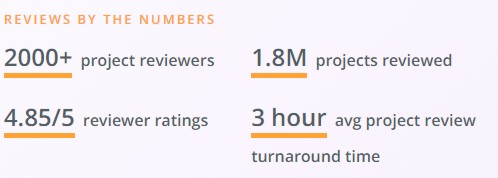| Udacity's School of Cloud Computing |
| Written by Alex Armstrong |
| Monday, 10 June 2019 |
|
Udacity recently announced its School of Cloud Computing and its first two Nanodegree programs - Cloud Developer and Cloud DevOps start on June 11, which is also the last day for enrollment in their inaugural presentations. Udacity introduces the new School, which sits alongside two others: Artificial Intelligence and Data Science with: Today, all companies, big or small, are adopting cloud computing to enable their digital transformation. The growth of this technology has created incredible demand for Cloud computing jobs, from Cloud developers and Cloud DevOps roles to more specialized roles such as solutions architects and Cloud security engineers. To further encourage enrollment in one or both of its two programs it displays these facts and figures about the job prospects for its graduates. The two programs are each estimated to take 4 months with 10 hours effort per week and students will be billed on a monthly basis - USD $399 per month per program (or £299 for those in the UK or $339 Euros). You don't just get tuition in the price. The extras are:
The facts and figures for Project Reviews are again prominently displayed: The other two extras are new and improved and the details are that you can expect check-ins with your mentor via weekly calls and the opporunity to call him or her for for 6 hours or more per month. Personal career coaching now includes monthly 1-on1 calls and students resumes are shared with 500+ employers. The student community services now support live chat and new features by way of challenges to encourage participation. So what do the two Cloud Nanodegrees cover and what do you already need to know? For Cloud Developer you should have intermediate knowledge of JavaScript, and familiarity with object-oriented programming, web development with HTML and CSS, and the Linux Command Line. The Front End Web Developer Nanodegree program is recommended if you need preparation. The course is aimed at devs who want to build applications on cloud technologies and in the course of the program students will:
The program's four modules are as follows with PROJECTS show in caps: Cloud Foundations Full Stack Apps on AWS Monolith to Microservices at Scale Develop and Deploy a Serverless App CAPSTONE PROJECT Its counterpart, Cloud Dev Ops Engineer, is designed for developers looking for a more operational role, or a system admin/operations managers wanting to upgrade their tech skills.the only pre-requisites are a basic understanding of any programming language, and basic knowledge of the Linux Command Line. The first of its modules, Cloud Foundations, is in common with Cloud Developer but then it continues with modules in which students:
As part of the fourth and final module students learn to deploy Machine Learning microservices that are elastic and fault tolerant and learn to pick the appropriate abstraction for microservices: Serverless (AWS Lambda) or Container Orchestration (Kubernetes) which is demonstrated in a project to OPERATIONALIZE A MACHINE LEARNING MICROSERVICE API. The final Capstrone project will, as always with a Nanodegree, bring together everything learned and be a worthy addition to a portfolio for those looking for a job. More InformationUdacity School of Cloud Computing Related ArticlesUdacity Launches School of Data Science Coursera and Google Address Cloud Security Skills Shortage To be informed about new articles on I Programmer, sign up for our weekly newsletter, subscribe to the RSS feed and follow us on Twitter, Facebook or Linkedin.
Comments
or email your comment to: comments@i-programmer.info |
| Last Updated ( Sunday, 26 July 2020 ) |




